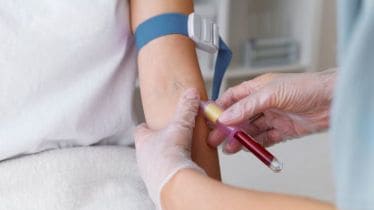A simple blood test could spot cancer in the body up to three years before it is officially diagnosed, according to a new study published in the journal Cancer Discovery. The test, known as a multicancer early detection (MCED) test, works by identifying tiny traces of DNA shed by tumours into the bloodstream—offering a potentially game-changing window of early detection.
Researchers at Johns Hopkins University used this test to examine archived blood samples from a large-scale US health study originally focused on heart disease. They found that in several cases, the MCED test detected cancer-linked genetic material in patients’ blood years before the disease showed any symptoms or was diagnosed.
“Detecting cancers years before their clinical diagnosis could help provide management with a more favourable outcome,” said senior researcher Nickolas Papadopoulos, professor of oncology at the Ludwig Center at Johns Hopkins. “Of course, we need to determine the appropriate clinical follow-up after a positive test for such cancers,” he further added.
How the test spotted cancer years early
For this small-scale study, researchers examined blood samples from 52 participants—26 who were later diagnosed with cancer and 26 who were not. Among these, eight people tested positive for tumour DNA using the MCED test. All eight were diagnosed with cancer within four months of providing the sample.
The cancers detected included colon, pancreatic, rectal, lung, breast, and liver cancer. Tragically, five of these eight patients died from their cancers, which shows the deadly nature of the disease when caught at a later stage.
To go a step further, the researchers retrieved earlier blood samples—taken three to three-and-a-half years prior—from six of the eight patients. Remarkably, tumour DNA was detected in four of those older samples, suggesting the presence of cancer long before traditional detection methods would have picked it up.
Why this test matters
“These findings show the promise of MCED tests in detecting cancers very early,” said Dr. Bert Vogelstein, co-senior researcher and co-director of the Ludwig Center at Johns Hopkins. “It sets a benchmark for the level of sensitivity these tests need to be effective,” he further added.
Catching cancer in its earliest stages significantly improves the chances of successful treatment. While this study was small, it adds to growing evidence that blood-based cancer screening could become a powerful tool in preventive healthcare.
The researchers explained that their goal wasn’t to test a specific MCED product but to prove that such tests can, in theory, detect cancers very early—even years before diagnosis. However, detecting cancer this early will require tests that are 50 times more sensitive than current ones used for shorter-term detection.
“Establishing technologies for achieving this benchmark is a worthy future goal,” the team concluded.
Though more diverse studies will be needed to validate these findings, this research marks a step forward in the early detection of cancer.
